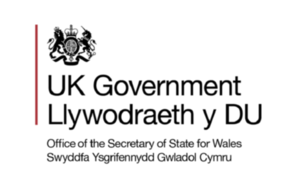UK Government to provide up to £23m in extra funding to tackle coronavirus in Wales
Press release
Simon Hart: Additional funding for Wales “highlights our determination to move forward together” in fight against coronavirus

The UK Government has committed up to £23m in extra funding to support the Welsh Government during the coronavirus pandemic.
As a result of recently-announced UK Government funding commitments to the Test and Trace Service and housing for rough-sleepers in England, the Welsh Government will receive up to £23 million in additional funding.
This takes the total given by the UK Government to support the effort in Wales to over £2.2 billion, helping the Welsh Government to deliver urgent priorities across public services in Wales as it works with the UK Government to tackle the pandemic.
The funding boost follows the UK Government’s commitment to provide tens of thousands of antibody tests per day across the UK. The UK Government is arranging supplies of tests on behalf of all UK nations, with the Welsh Government deciding how best to use its test allocations.
Secretary of State for Wales Simon Hart said:
The UK Government is committed to doing whatever it takes to defeat coronavirus.
We are supporting the Welsh Government to meet the exceptional challenges it currently faces, providing £23 million more in additional funding.
Along with the recent roll-out of antibody tests for front-line workers across the UK, the additional funding for Wales highlights our determination to move forward together in the fight against coronavirus.
As well as providing more than £2.2 billion extra funding for the devolved administration is Wales, the UK Government has set up a range of UK-wide measures that are available to support people and businesses in Wales. £330 billion has been invested in support including UK Government-backed loans, the Job Retention Scheme and mortgage payment holidays. The UK military is also providing both the Welsh Government and the NHS with additional specialist skills and expertise.
ENDS
Published 26 May 2020
